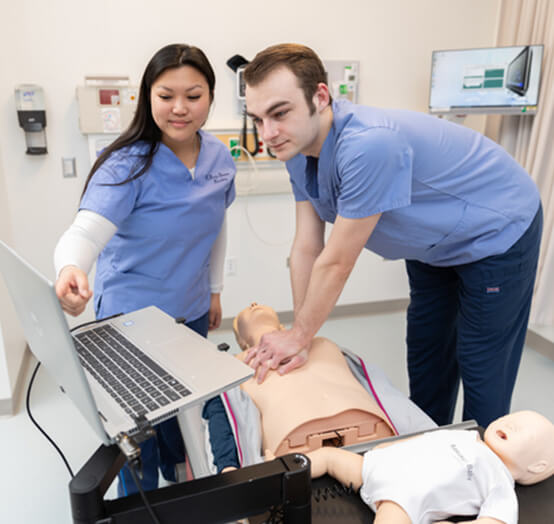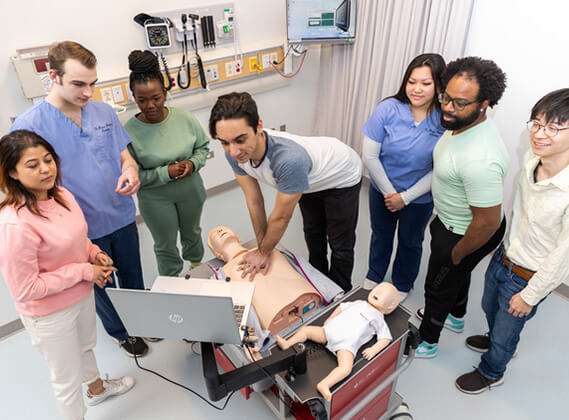Nursing Education
Advancing the Health of the Nation and Global Communities
Saving more lives by improving CPR competence in nursing education
Nurses are instrumental in managing in-hospital cardiac arrest. However, research illustrates that not all nurses are competent in CPR. As a result, not all patients receive the high-quality CPR they need to survive.
Adopting the RQI Program into the nursing education curriculum can play a pivotal lifesaving role. Together, we will help nursing programs prepare their students to enter clinical practice with resuscitation competence and maximize nurses’ and other healthcare providers’ lifesaving abilities.
Our goal is to prepare the next generation of nurses to maximize lifesaving resuscitation competence and improve cardiac arrest outcomes.
Our Focus
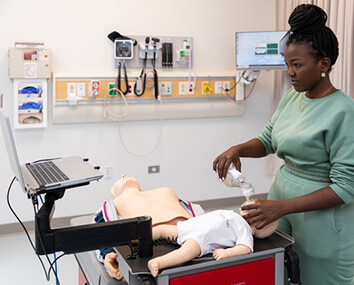
Innovate CPR Education
Integrating proven advancements in resuscitation science into CPR curriculum and instruction to improve student competence and support their transition to practice.
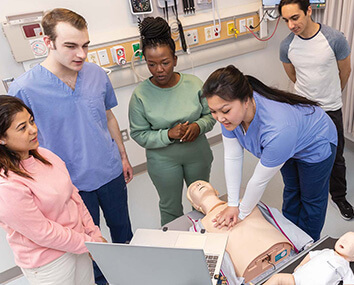
Verified CPR Competence
Measuring and verifying competence through self-directed, competence-based simulation mastery learning and performance provided through cognitive and hands-on CPR quality improvement sessions.

Improving CPR Outcomes
Transforming the standard of resuscitation care for in-hospital cardiac arrest.
We’re Committed to Educating Future Nurses
The RQI Program provides resuscitation education and quality improvement designed to transform the response to and outcomes from sudden cardiac arrest. Incorporating the RQI curriculum early in the academic journey empowers learners to be confident and competent to perform high-quality CPR.
RQI’s evidence-based, adaptive learning program integrates within nursing and allied health curriculums to foster clinical decision-making aptitude, skills proficiency and self-efficacy.
With the RQI Program in the nursing curriculum, nursing students are prepared to enter into clinical practice with lifesaving verified competence and a strong foundation for lifelong career success.
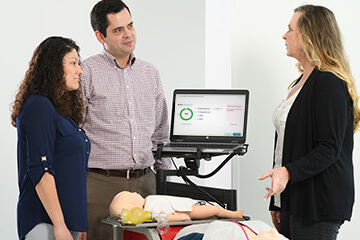
Verified Competence
True Adaptive TM Learning responds to each student’s needs. Baseline clinical skills are evaluated upfront, then assessments and learnings are tailored to the individual’s needs. Detailed clinical skills coaching and refinement and comprehensive analytics optimize students’ learning comprehension.
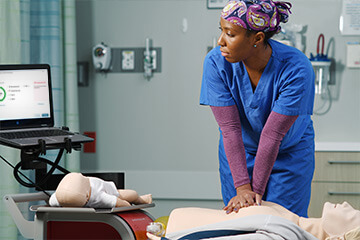
Enriched Practice
Ongoing CPR training and practice is the heart of RQI methodology. Low-dose, high-frequency training is proven to increase knowledge retention and aid the development of psychomotor skills necessary to administer high-quality CPR.
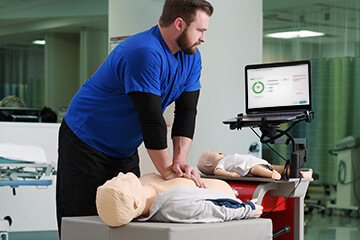
Career Success
Nursing and allied health professionals with high-quality CPR training are in demand. Individuals competent in RQI have the clinical skills that matter — to save lives and maximize outcomes.

Compliance
RQI easily integrates with institutional learning management systems, assuring consistency among all students and reducing the administrative burden of student credential verification. Students earn an essential credential for sitting for board examinations and employment.

National League for Nursing (NLN)
To address the increasing demand and need for high-quality CPR, the National League for Nursing (NLN) has partnered with Laerdal Medical and the RQI Program. We recognize that having strong nursing competencies begins in the classroom.
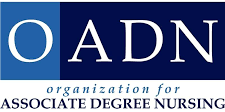
Organization for Associate Degree Nursing
As part of our commitment to educating nursing students, we continue to work with LPN and other schools as part of the professional education journey. One of our newest partners is the Organization for Associate Degree Nursing.
